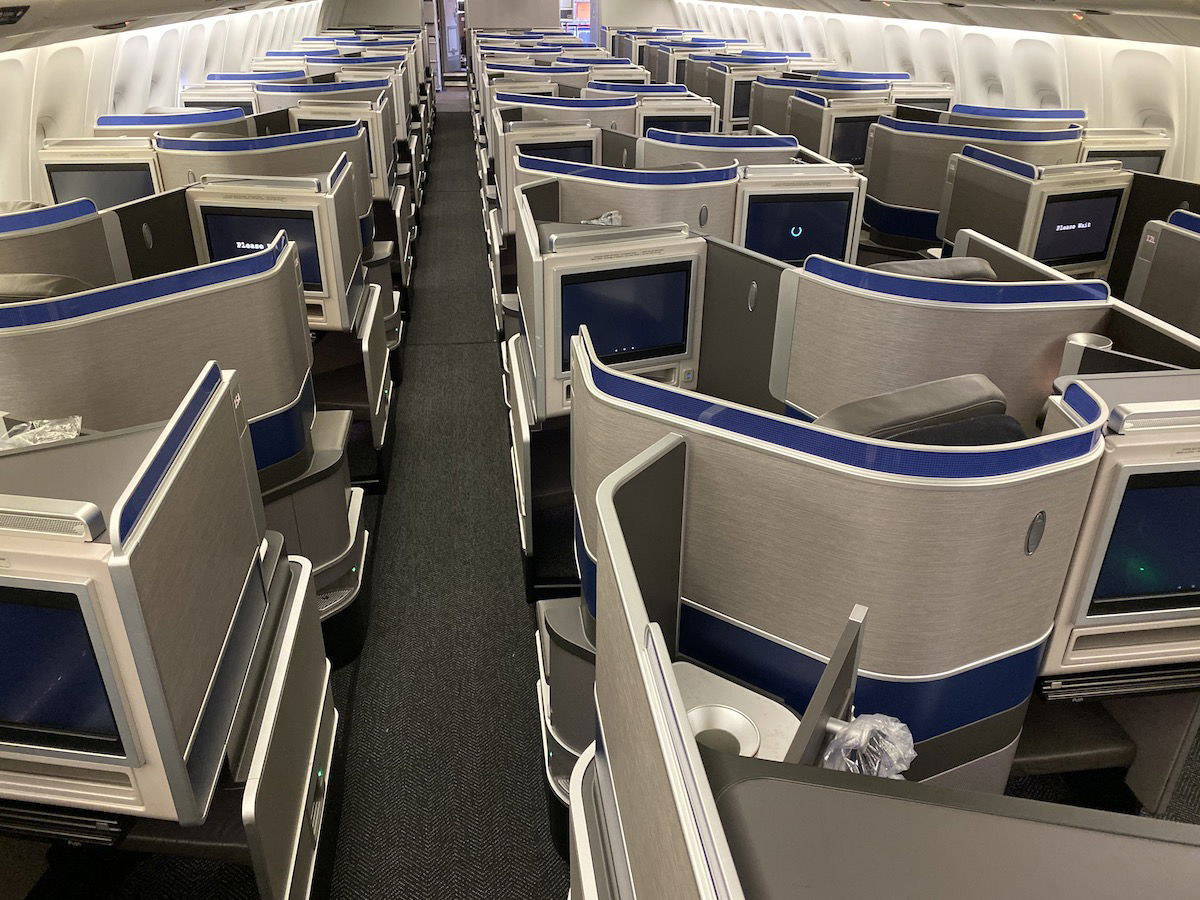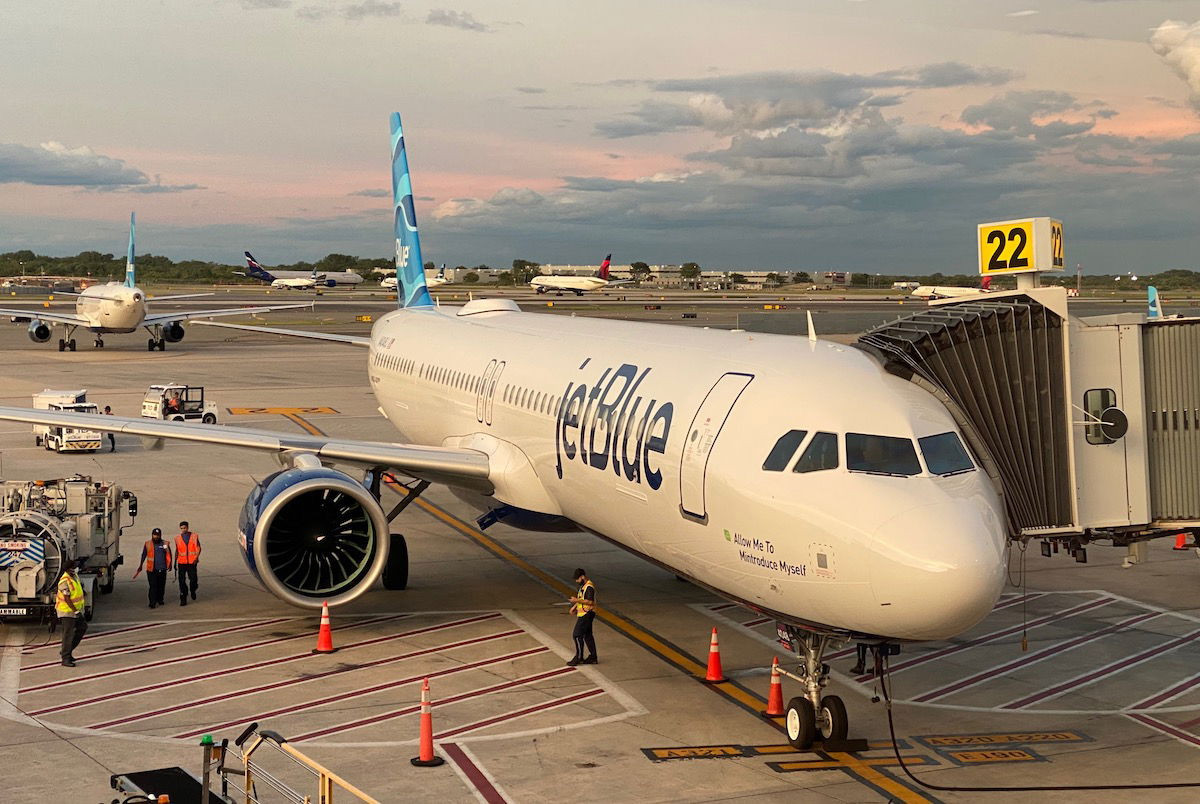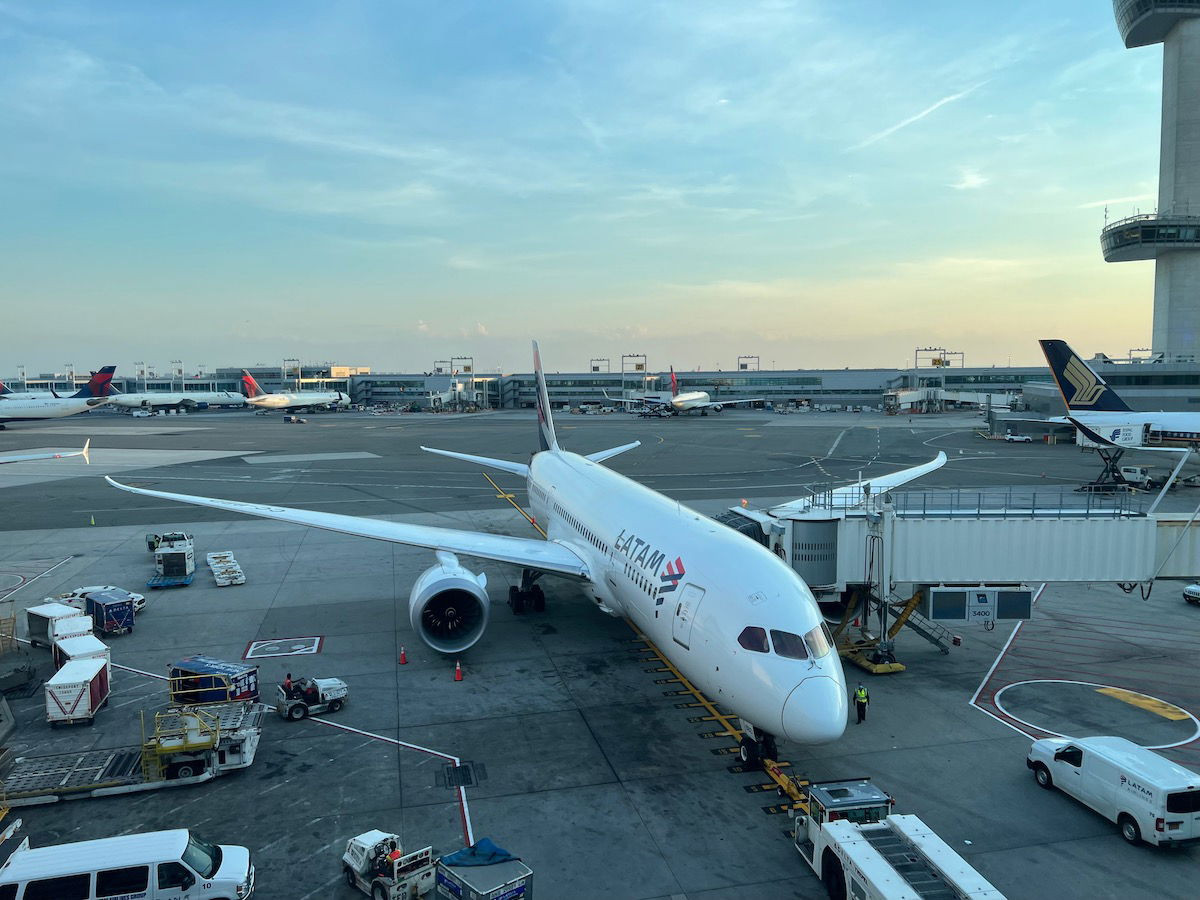For travelers frequently navigating the skies, especially in and out of New York City, airport options are crucial. John F. Kennedy International Airport (JFK) is a major hub, and airlines’ presence there significantly impacts travel choices. Recently, United Airlines, a key player in the aviation industry, made headlines regarding its operations at JFK. The question on many travelers’ minds: Does United Fly Out Of Jfk? The straightforward answer, as of late October 2022, is no, United Airlines has temporarily suspended its services at JFK. This decision, however, is layered with history, strategic missteps, and a struggle for coveted airport slots.
United’s Short-Lived Return to JFK
To fully grasp the current situation, it’s essential to rewind to spring 2021. After a six-year absence, United Airlines resumed flights from JFK. This return marked a significant shift, as United had previously pulled out of JFK in 2015, choosing to consolidate its New York operations at Newark Liberty International Airport (EWR). The rationale behind the 2015 exit was a belief that passengers could be effectively served through Newark.
 United Airlines Polaris Business Class
United Airlines Polaris Business Class
However, this strategy didn’t fully pan out. United Airlines CEO Scott Kirby himself acknowledged that leaving JFK was a miscalculation. The airline realized it was missing out on a substantial segment of the New York market by not operating from JFK, a preferred airport for many travelers, especially those in certain parts of the city and those seeking specific international connections.
Upon its 2021 return, United initiated flights from JFK to key West Coast destinations: Los Angeles (LAX) and San Francisco (SFO). However, expansion beyond these routes was limited. JFK operates as a slot-controlled airport, a designation it shares with only a few airports in the United States. This “slot restriction” means airlines cannot simply add flights at will; they need to acquire or be granted slots, which are essentially permissions to take off and land at specific times.
United’s comeback to JFK coincided with a period when temporary slots became available due to the pandemic-induced drop in air travel demand. These temporary slots provided the entry point for United’s renewed JFK presence. However, as travel demand rebounded, the temporary nature of these slots became a critical issue.
The Threat to Abandon JFK and the Slot Struggle
In September 2022, United Airlines issued a stark warning: it might cease JFK operations by late October 2022 if it didn’t secure permanent slots. In a memo to employees, the airline articulated its predicament. Without permanent slots, United argued, it couldn’t establish a competitive schedule at JFK, especially when compared to airlines with a larger and more established presence.
The memo highlighted the competitive disadvantage: JetBlue, for instance, offered six times more flights to Los Angeles from JFK than United, and American Airlines also had a significantly larger JFK-LAX presence. United emphasized that its initial JFK return was based on temporary slots, and the impending return of slot holders as travel recovered threatened its already limited operations.
United appealed to the Federal Aviation Administration (FAA) to increase capacity at JFK. The airline pointed out that JFK’s hourly slot allocation had remained stagnant since 2008, despite airport infrastructure improvements. United contended that increasing slots and allocating some to them would serve the public interest by fostering greater competition and offering consumers more choices.
The ultimatum was clear: United sought a “multi-season allocation” of permanent slots. Failing to obtain these, the airline declared, would force it to “suspend service at JFK, effective at the end of October.” This was presented as an undesirable but unavoidable outcome if their slot request remained unmet.
 JetBlue Mint Cabin
JetBlue Mint Cabin
United Airlines Exits JFK, Consolidating at Newark
Ultimately, United’s plea for permanent slots was unsuccessful. As a result, United Airlines officially ended its JFK flights in late October 2022, as the summer travel schedule concluded. The airline discontinued its routes to both Los Angeles and San Francisco, consolidating its New York area operations entirely at Newark.
In a subsequent memo, United explained its decision, stating that its “too-small-to-be-competitive schedule out of JFK” combined with the winter season’s increased slot utilization by other airlines, led to the “difficult decision to temporarily suspend service at JFK.”
While characterized as a “temporary suspension,” the future of United’s return to JFK remains uncertain. The airline would need to acquire a substantial number of slots to make a return viable and competitive. Whether such an acquisition is feasible in the near future is a matter of speculation.
 United Boeing 757-200
United Boeing 757-200
Analyzing United’s JFK Predicament
The situation raises questions about airport competition and market access. While increased competition generally benefits consumers, United’s approach to securing a larger JFK presence has been viewed by some as somewhat opportunistic and even contradictory to its stances at other airports.
Several points are worth considering:
- Voluntary Departure in 2015: United willingly left JFK in 2015, even engaging in a slot swap with Delta Air Lines, which suggests they benefited from the exit at the time. Their subsequent regret and victim narrative regarding slot scarcity at JFK raises questions about their long-term planning. Why should United be prioritized for permanent slots over airlines that have consistently sought JFK access?
- JFK Redevelopment: JFK is currently undergoing a major modernization project. Expanding capacity during such a project, even if runway capacity theoretically allows, might be logistically and operationally complex.
- Temporary Slot Expectations: When United returned to JFK in 2021, it was explicitly with temporary slots. Expecting these to automatically convert to permanent slots seems unrealistic.
- All-or-Nothing Approach: United’s demand for a multi-season slot allocation, coupled with the threat to leave entirely if denied, presented a rigid stance. This approach might have limited negotiation possibilities.
- Contrasting EWR Stance: United’s argument for JFK slot expansion contrasts sharply with its position at Newark. At EWR, United has consistently opposed allocating more slots to ultra-low-cost carriers, citing congestion concerns. This apparent double standard weakens their argument for preferential slot allocation at JFK.
 Emirates Lounge JFK
Emirates Lounge JFK
In Conclusion: United, JFK, and the Future
As of late October 2022, United Airlines does not fly out of JFK. The airline ceased its operations due to its inability to secure permanent slots at the slot-controlled airport. This departure marks the end of United’s brief return to JFK, which began in 2021 after a six-year hiatus.
While United’s return to JFK was initially seen as a positive development for competition, their strategy to secure a long-term presence proved unsuccessful. Having previously relinquished its JFK slots, and returning only when temporary slots became available, United’s expectation of easily obtaining permanent slots appears, in hindsight, overly optimistic.
The question now is whether United will attempt another return to JFK in the future. For that to happen, a significant shift in slot availability or a change in United’s strategic approach would be necessary. For now, travelers looking for United flights in the New York area will need to utilize Newark Liberty International Airport (EWR).
What are your thoughts on United’s departure from JFK and its implications for competition and traveler choice?
